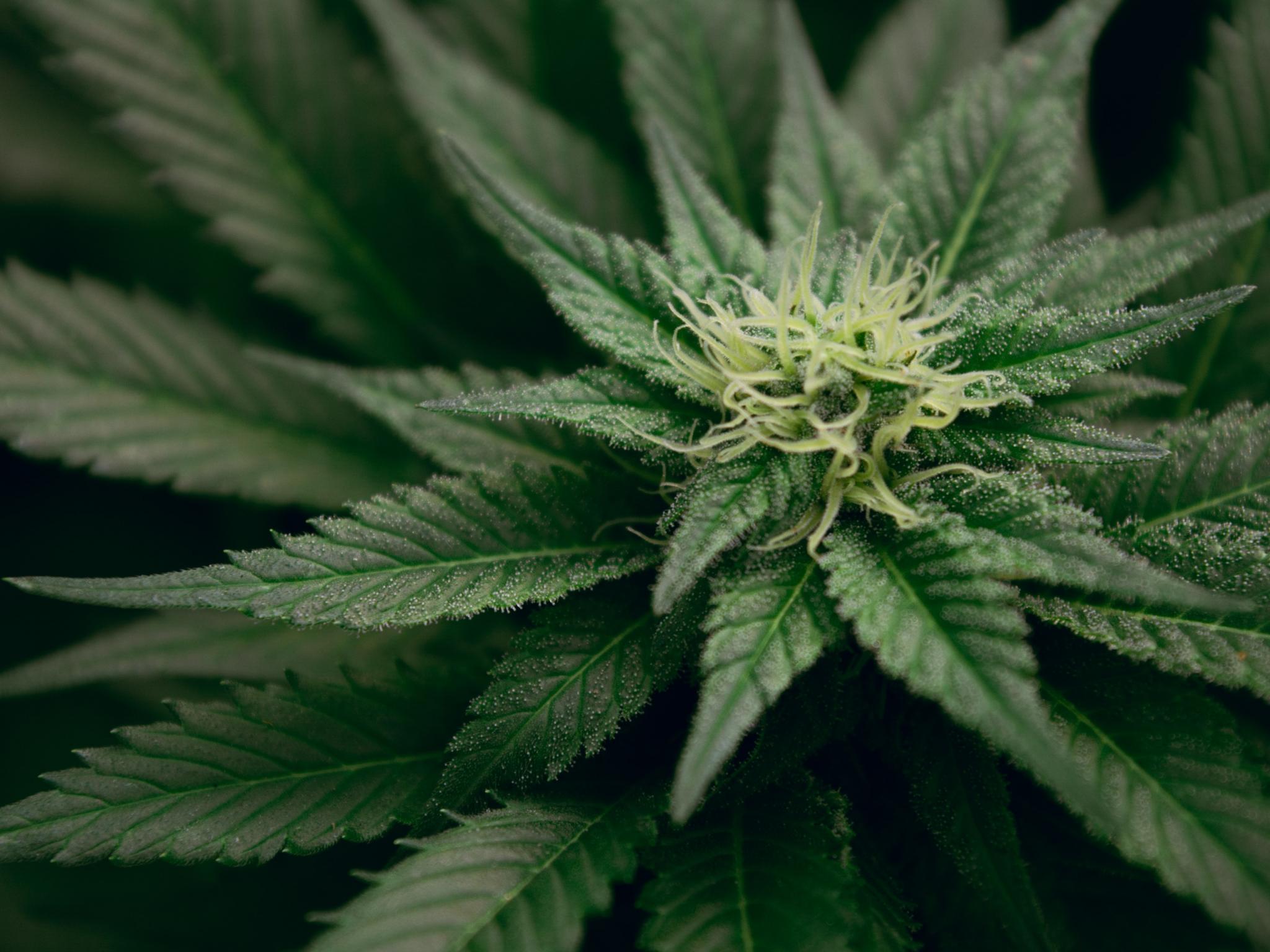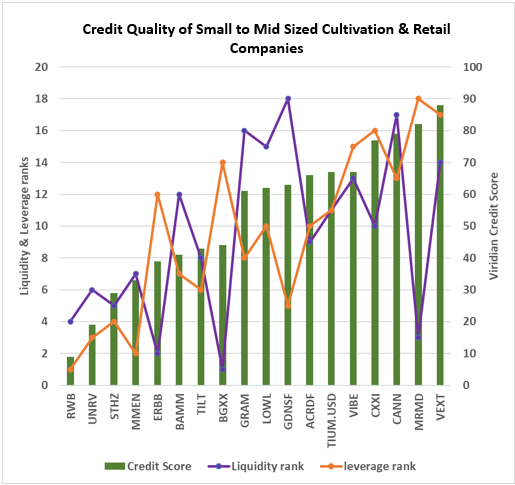
Over the last two weeks, TerrAscend (OTC:TRSSF), Verano (OTC:VRNOF), and Acreage (OTC:ACRDF) have obtained new credit agreements with interest rates in the low teens, demonstrating that Tier one MSOs still have solid, albeit expensive, access to the credit markets.

Smaller public and private companies have constrained access to debt, and rates are likely to be high and contain equity kickers for many of these companies. Companies with liquidity pressures, including maturing debt, may be subjected to effective costs as high as 30%.
Accordingly, we are watching liquidity more carefully and have recently adjusted the Viridian Credit Tracker Scoring model to place a higher weight on this factor.
The companies on the graph are the 18 U.S. Cultivation & Retail companies in the Viridian database with market caps between $10M and $200.
The green bars in the chart show the Viridian Credit Score for each company arranged in increasing order of credit quality.
The model uses 11 financial and market-based variables to evaluate: four credit quality aspects: Liquidity, Leverage, Profitability, and Size.
The Viridian credit model is particularly valuable for companies in this size range because ten of the eighteen have no analyst coverage.
The purple line shows the relative ranking on our liquidity score, which considers the company's liquid assets, its free cash flow burn, and its near-term liabilities, including debt maturities. Companies with Liquidity ranks below 12 will likely require incremental financing over the next year. Ten of the eighteen companies on the chart have negative cash flow from operations in the most recent quarter.
The orange line shows the Viridian Leverage rank. Ranks below ten generally coincide with debt to market cap measures over 3x, which we consider indicative of financial stress.
Viridian's multi-factor model considers the tradeoffs inherent in each company's financial picture. For example, MariMed (MRMD: CSE) scores low on liquidity and is likely to require near-term financing; however, it has one of the lowest overall leverage ratings, giving us confidence that it should be able to obtain funding.
The constrained capital market environment makes it critical that debt and equity investors monitor credit quality closely, and the Viridian Credit Tracker model can be a valuable tool.
The Viridian Capital Chart of the Week highlights key investment, valuation and M&A trends taken from the Viridian Cannabis Deal Tracker.
The Viridian Cannabis Deal Tracker provides the market intelligence that cannabis companies, investors, and acquirers utilize to make informed decisions regarding capital allocation and M&A strategy. The Deal Tracker is a proprietary information service that monitors capital raise and M&A activity in the legal cannabis, CBD, and psychedelics industries. Each week the Tracker aggregates and analyzes all closed deals and segments each according to key metrics:
-
Deals by Industry Sector (To track the flow of capital and M&A Deals by one of 12 Sectors - from Cultivation to Brands to Software)
-
Deal Structure (Equity/Debt for Capital Raises, Cash/Stock/Earnout for M&A) Status of the company announcing the transaction (Public vs. Private)
-
Principals to the Transaction (Issuer/Investor/Lender/Acquirer) Key deal terms (Pricing and Valuation)
-
Key Deal Terms (Deal Size, Valuation, Pricing, Warrants, Cost of Capital)
-
Deals by Location of Issuer/Buyer/Seller (To Track the Flow of Capital and M&A Deals by State and Country)
-
Credit Ratings (Leverage and Liquidity Ratios)
Since its inception in 2015, the Viridian Cannabis Deal Tracker has tracked and analyzed more than 2,500 capital raises and 1,000 M&A transactions totaling over $50 billion in aggregate value.
The preceding article is from one of our external contributors. It does not represent the opinion of Benzinga and has not been edited.







